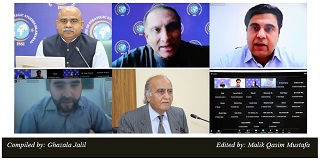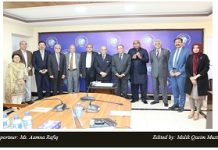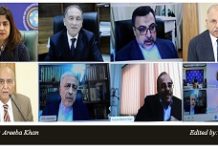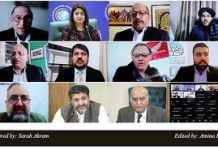The Arms Control & Disarmament Centre (ACDC) at the Institute of Strategic Studies Islamabad (ISSI) organised a Webtalk on “Artificial Intelligence for Socio-Economic Development in Pakistan” by Dr Yasar Ayaz, Chairman, National Centre of Artificial Intelligence (NCAI), NUST on April 26, 2022. Dr Munam Ali Shah, Associate Professor Department of Computer Science, COMSATS, Islamabad was the discussant at the Webtalk.
In his welcome remarks, Ambassador Aizaz Ahmad Chaudhry, Director General ISSI, said that Artificial Intelligent (AI) has helped humans perform tasks faster from recognising speech and using stored memory and responding to requests, to an ATM that interacts with humans to buying an airline ticket on a computer or machine, to the use of robots to do things with much greater speed and efficiency. AI can work at a phenomenal speed and make our workplaces more efficient. It has brought a revolution to the modern world. Ultimately AI can be used for tremendous socio-economic development. However, he expressed concern over the potential to weaponise AI technology for military purposes. AI is a dual-use technology that humans can choose to use for the betterment of humanity or for destructive purposes.
Earlier in his introductory remarks, Malik Qasim Mustafa, Director ACDC, said that AI is widely accepted as the major driving force of the fourth Industrial Revolution and it has the potential to bring socio-economic development to a country. The COVID-19 pandemic has shown us how digital technologies and AI-based models have addressed public health management challenges. He said that AI could play a substantive role in achieving 17 UN Sustainable Development Goals (SDGs) that are the building blocks of the 2030 agenda for sustainable development. Hence, it is high time for Pakistan to harness AI for its Socio-Economic Development, as AI can play a major role in urban planning and monitoring, smart cities, precision agriculture and food production, water resource management and the health sector.
















